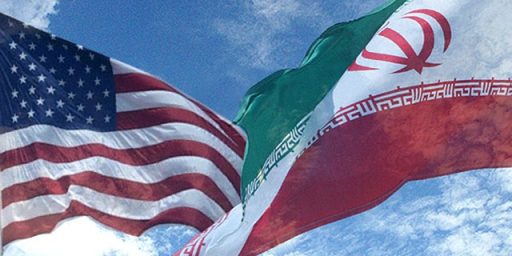U.S. Withdraws from ICJ Death Penalty Protocol
U.S. Says It Has Withdrawn From World Judicial Body (NYT)
Prompted by an international tribunal’s decision last year ordering new hearings for 51 Mexicans on death rows in the United States, the State Department said yesterday that the United States had withdrawn from the protocol that gave the tribunal jurisdiction to hear such disputes. The withdrawal followed a Feb. 28 memorandum from President Bush to Attorney General Alberto R. Gonzales directing state courts to abide by the decision of the tribunal, the International Court of Justice in The Hague. The decision required American courts to grant “review and reconsideration” to claims that the inmates’ cases had been hurt by the failure of local authorities to allow them to contact consular officials.
The memorandum, issued in connection with a case the United States Supreme Court is scheduled to hear this month, puzzled state prosecutors, who said it seemed inconsistent with the administration’s general hostility to international institutions and its support for the death penalty. The withdrawal announced yesterday helps explains the administration’s position.
Darla Jordan, a State Department spokeswoman, said the administration was troubled by foreign interference in the domestic capital justice system but intended to fulfill its obligations under international law. But Ms. Jordan said, “We are protecting against future International Court of Justice judgments that might similarly interfere in ways we did not anticipate when we joined the optional protocol.”
U.S. Quits Pact Used in Capital Cases (WaPo)
The Bush administration has decided to pull out of an international agreement that opponents of the death penalty have used to fight the sentences of foreigners on death row in the United States, officials said yesterday. In a two-paragraph letter dated March 7, Secretary of State Condoleezza Rice informed U.N. Secretary General Kofi Annan that the United States “hereby withdraws” from the Optional Protocol to the Vienna Convention on Consular Relations. The United States proposed the protocol in 1963 and ratified it — along with the rest of the Vienna Convention — in 1969.
The protocol requires signatories to let the International Court of Justice (ICJ) make the final decision when their citizens say they have been illegally denied the right to see a home-country diplomat when jailed abroad. The United States initially backed the measure as a means to protect its citizens abroad. It was also the first country to invoke the protocol before the ICJ, also known as the World Court, successfully suing Iran for the taking of 52 U.S. hostages in Tehran in 1979. But in recent years, other countries, with the support of U.S. opponents of capital punishment, successfully complained before the World Court that their citizens were sentenced to death by U.S. states without receiving access to diplomats from their home countries.
This strikes me as an odd move. One certainly doesn’t want to surrender sovereingty of one’s domestic law enforcement to an international body, let alone one under the auspices of the corrupt and inept United Nations. Still, the requirement to let foreign nationals meet with consular officials doesn’t seem particularly onerous and the protection of Americans abroad, especially in Third World countries, would seem worth that price.
Correction: Changed title to better reflect the story. As commenter RG points out, the US withdrew only from a specific protocol, not the ICJ itself.






Once again ideology trumps common sense again. But this administration has ceased amazing me with its rigid idelology. But then again, I don’t really see the State Department much interested in protecting US Citizens abroad anyway.
That is a confusing NYT headline (wrong) and article. First off, the USA is not withdrawing from the International Court of Justice, it is saying it will no longer observe an optional Protocol. Not being all that familial with the ICJ (but relatively familiar with treaty law) I can’t immediately say it this guts the intent of the ICJ agreement or not with regards to US participation. Regardless, I’m sure we are still paying about a quarter of its budget. Next, I much doubt, “puzzled state prosecutors, who said it seemed inconsistent with the administration’s general hostility to international institutions and its support for the death penalty.” State prosecutors said that? Really, including Texas where many of the cases were? Or Beltway pundits?
Given how the concept of nationality has become more fluid since our ratification in 1969 (dual citizenships), and the EU and Mexico’s political use of the court, I am not surprised the Administration reviewed this issue. It looks like the only way out they could find was to ditch the entire optional Protocol.
To prevent confusion by some, this is not the International Criminal Court (AKA by some as the “European” Criminal Court), which is trying the Yugoslav war crimes. The USA is definitely not “party to” the ICC. Also, watch out if you look up just “Vienna Convention.” There are lots of “Vienna Contentions” on myriad topics, it is the location where the negotiations took place.
Slight correction to my above, we likewise have not withdrawn from the Vienna Convention on Consular Relations (VCCR) – this is the relevant item, not the ICJ.
The Washington Post article is much better, though it’s ending quote is incomplete and leaves the wrong impression. The full quote is “The State of Texas believes no international court supersedes the laws of Texas or the laws of the United States,” Mr. Strickland said. “We respectfully believe the executive determination exceeds the constitutional bounds for federal authority.” (WaPo only use the last sentence, making it sound like the Fed’s had not control over treaties, which made no sense.)